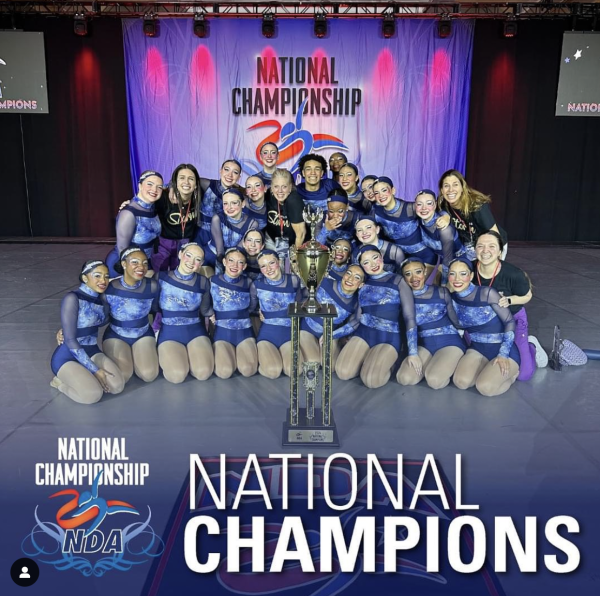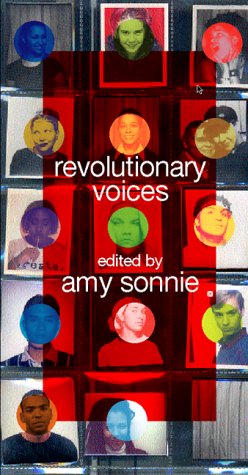From the vault: “Books teach white history”
Analyzing and reflecting on a 24 year old Holly Spirit Article
February 18, 2021
“From the Vault” is a regular column in which we feature and review a piece written from past Holly Spirit issues.
RV class of 98’ student Roger Reeves wrote in a May 1997 publication (Vol. LIII, No. 4) of the Holly Spirit, “History is a one-sided story told by the founding fathers of America, and since none of our founding fathers happened to be black, our books do not present a black perspective or any other nationality’s perspective.” Reeves solidifies his reasoning through a number of ways. He lists Black inventors and historic actions from Black people and slaves that shaped the creation of America as a whole. Additionally, he discusses how Black people continued to be seen as unequal and the abusive effects of not knowing one’s history, and encourages fellow students and young people to fight in the name of diversifying the education system.
The argument that Black history needs to be taught in schools remains relevant nearly 24 years later. Last summer’s protest on RV’s school grounds formed as an extension of the larger conversation of race spurred by the Black Live Matter movement in the wake of George Floyd’s murder. The protestors cited numerous complaints against the school, and demanded respect for Black students and faculty as well as an active BIPOC history being integrated and normalized in RV’s curriculum. Reeves would likely be glad to know that many RV students continue to further the call to action in the name of Black history.
So, the persistence of similar ideas and opinions to today’s students–despite it being published over 20 years ago–points to the validity of Reeve’s article today. But would Reeves’ article still stand firmly in today’s Holly Spirit climate? Principally yes, but in practice no; not without heavy editing, some deeper thinking and further remarks.
One of the first and most noticeable of the ‘article ailments’ is his consistent use of “blacks” when in reference to Black people and slaves throughout history. The issue with this term can be chalked up to fairly recent changes in political correctness, as ‘blacks’ or ‘the blacks’ can be seen as a derogatory and separating term, for what is now best simply stated as Black people. This political incorrectness could be easily overlooked, as his focus shifts towards the reasons as to why Black history is not expanded upon: first, because he founding fathers were white, and the second, because of issues of inequality between Black and white people, specifically the stigmatism between the races that ensued after the Civil War… except this shift digs Reeves into an off-putting hole of analogy.
“Imagine you owned a dog that you considered less than yourself,” he said. “However, this dog walked like you, talked like you, and had feelings like you. Suppose one day, you were told the dog is now equal to you. Would you consider the dog equal? Despite the dog’s past history of being a servant, the stigmatism of the dog being your servant is always there. Think on that.”
Well, thinking on that, Reeves would have been far better off without this analogy.
Despite having the heart of an idea, comparing Black people to dogs, regardless if the said dog is apparently equal, is enough to make many readers cringe and invalidate any other points he may make on the situation. In Reeves’ attempt at bringing light to inequality, he inadvertently exposed said bias within his own analogy.
Beyond this poorly-created analogy, the irony of making powerful claims (but slightly nullifying them with his own reasoning) continues. Within the article, Reeves calls out to the fact that a lack of knowledge about one’s roots and history can severely affect that person’s identity, pride and culture and lead to feelings of inferiority, subsequently allowing the other cultures to be lifted up and seen as superior, which can be dangerous – valid and important points made all around. He later states powerfully, “One who disagrees with my thought might say Black History is celebrated in the month of February. Black Americans didn’t just work one month out of the year on the cotton fields.”
Reeves goes on to reason that Black Americans have been in America since it’s foundation, which, in some ways is true, as he also earlier states that the Capitol itself was designed by Black architect, Benjamin Banneker, and that slaves performed years of unappreciated labor. His main point is that Black history should be incorporated into the US history curriculum because Black men and women contributed an immense amount to American society and growth; which is solid. But in terms of reconnecting and educating Black people with their historical roots, it would need to be further expanded into a world history view, as the history of Black and African Americans does not start in America.
Back on the train of political correctness, African Americans are nation-specific, meaning that they are Black and were born in America, often mentioned in connection to generations of slavery. Black Americans on the other hand, can have roots and ancestors anywhere around the world rather than just through African-American slavery, and are the product of first and second generation immigrants. So, in order to accomplish the goal of educating Black people of their history, publishers and educators would need to expand farther than America, as not only is it that not all Black Americans are related to slavery, but those who were lost most familial and cultural specifics in the process, leaving a need for discovery.
Dialing back, in a more positive light, Reeves finishes his article with a loud invitation to his fellow students and young people to tear down discriminatory and limited education standards and demand educators and publishers to include and teach a diverse view of America. In spite of being a single, flawed voice in a crowded newspaper room, Reeves effectively identifies an issue that continues to be a relevant topic 24 years later.











